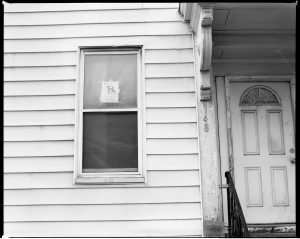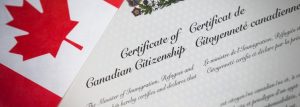Fact Situation
- On September 6, 2020, a boyfriend (“BF”) and girlfriend (“GF”) decide they are going to live together at the girl’s parents’ basement. The couple then decided they needed their own place.
- On October 1, 2020, the GF and her BF move into a rental unit together. The GF is the only tenant listed on the lease, the BF is only listed as an occupant.
- On December 12, 2020, the GF moves out of the rental unit claiming the relationship with her BF has ended.
- The GF removes all of her possessions from the rental unit.
- On March 1, 2021, the GF then returns back to the rental unit and instructs the landlord to disable the BF’s key-fob access to the rental unit.
- The rent is fully paid with no arrears owing at the time the landlord locked out the boyfriend.
- The female tenant then calls the Durham Regional Police Services (“DRPS”) and attempts to have the boyfriend removed. The DRPS then instructs the landlord to restore access to the rental unit for the BF.
- On March 3, 2021, the GF again calls the DRPS and requests that the DRPS remove the BF. This time the DRPS complies with the request and removes the BF from the rental unit claiming he is a trespasser under the Trespass to Property Act, R.S.O. 1990[1].
- The landlord then removes the BF’s access to the rental unit by disabling the BF’s key fob.
- The couple does not have children together.
Core Question: Does the BF have any protections under the RTA that prevent the landlord from removing him from the rental unit?
Legal Questions (Re: Fact Situation)
- Is the boyfriend a spouse as defined by the RTA?
- Is the boyfriend a spouse as defined by the Ontario Human Rights Code (“the code”)?
- Is there a conflict between the RTA and the code with respect to the meaning of spouse?
- If there is a conflict between the RTA and the code with respect to the meaning of spouse, which definition prevails?
- If the spousal status has been removed, does the former spouse lose the protection of the RTA?
Legal Analysis (Re: Fact Situation)
Re: Is the boyfriend a spouse as defined by the RTA?
The Residential Tenancies Act, 2006, S.O. 2006, c. 17[2](“RTA”) states in section 2:
- 2 (1) In this Act,
- …
“spouse” means a person,
- (a) to whom the person is married, or
(b) with whom the person is living in a conjugal relationship outside marriage, if the two persons,
- (i) have cohabited for at least one year,
- (ii) are together the parents of a child, or
- (iii) have together entered into a cohabitation agreement under section 53 of the Family Law Act; (“conjoint”)
However, section 3, sub-section (4) of the RTA states:
- 3 (4) If a provision of this Act conflicts with a provision of another Act, other than the Human Rights Code, the provision of this Act applies.[Emphesis Added]
In our fact situation, the GF and BF are living together in a conjugal relationship outside marriage, however for a period of less than one year. Without taking into consideration the Ontario Human Rights Code, (“the code”) the BF is not a spouse under the RTA.
Re: Is the boyfriend a spouse as defined by the Ontario Human Rights Code (“the code”)?
Furthermore, section 10 (1) of the Ontario Human Rights Code, R.S.O. 1990, c. H.19[3] states in part:
10 (1) In Part I and in this Part,
- …
- “spouse” means the person to whom a person is married or with whom the person is living in a conjugal relationship outside marriage. (“conjoint”)
In our fact situation, the GF and BF are living in a conjugal relationship outside marriage, as prescribed by the code. The code does not place temporal, or residential conditions on the parties as a requirement on the parties to determine if a spousal status has been obtained.
Given our above fact situation above, the question that must be addressed is whether there is a conflict between provisions of the Residential Tenancies Act, 2006, S.O. 2006, c. 17 and the Ontario Human Rights Code, R.S.O. 1990, c. H.19.
Re: Is there a conflict between the RTA and the code with respect to the meaning of spouse?
When we compare the meaning of spouse side by side under the Residential Tenancies Act, 2006, S.O. 2006, c. 17 and the Ontario Human Rights Code, R.S.O. 1990, c. H.19. we see the following:
- Residential Tenancies Act, 2006, S.O. 2006, c. 17: the person is living in a conjugal relationship outside marriage, if the two persons, (i) have cohabited for at least one year, (…).
- Ontario Human Rights Code, R.S.O. 1990, c. H.19: the person to whom a person is married or with whom the person is living in a conjugal relationship outside marriage.
Given our above fact situation, it is very clear that the temporal and residential occupation requirement placed on the parties under the Residential Tenancies Act, 2006, S.O. 2006, c. 17 is in conflict with the broader definition of spouse provided for under the Ontario Human Rights Code, R.S.O. 1990, c. H.19.
Re: If there is a conflict between the RTA and the code with respect to the meaning of spouse, which definition prevails?
As was mentioned earlier, the Residential Tenancies Act, 2006, S.O. 2006, c. 17[2] section 3 (4) states:
- 3 (4) If a provision of this Act conflicts with a provision of another Act, other than the Human Rights Code, the provision of this Act applies.[Emphesis Added]
A fundamental principle of statutory construction as found in London Property Management Assn. v. London (City) 2011 CarswellOnt 11699, 2011 ONSC 4710[4], citing the Supreme Court of Canada in The Toronto Railway Company v. Paget (1909), 42 S.C.R. 488, whereby the court states:
- 54. I note also that as a matter of statutory interpretation, courts should attempt to interpret two potentially conflicting pieces of legislation in a way that avoids a conflict. In Brantford (City) Public Utilities Commission v. Brantford (City) (1998), 36 O.R. (3d) 419 (Ont. C.A.), the Ontario Court of Appeal said at para. 27:
- In dissolving the Public Utilities Commission and establishing the Hydro-Electric Commission the City was not exercising any of the powers given to municipalities by Bill 26. More importantly, in my view, the exercise of those powers did not conflict with s. 210.4 or the regulations. In approaching this issue it is important to bear in mind a fundamental principle of statutory construction that courts should attempt to avoid finding a conflict between two pieces of legislation. Anglin J. expressed this principle in The Toronto Railway Company v. Paget (1909), 42 S.C.R. 488 at p. 499:
- • It is not enough to exclude the application of the general Act that it deals somewhat differently with the same subject-matter. It is not “inconsistent” unless the two provisions cannot stand together.
The Ontario Court of Appeal in Canada Post Corporation v. Hamilton (City), 2016 ONCA 767 (CanLII)[5], citing the Supreme Court of Canada in Alberta (Attorney General) v. Moloney, 2015 SCC 51, (2015) 3 S.C.R. 327, at paras. 17-29[6] summarized when a conflict of law will occur, at para. 29:
- [I]f the operation of the provincial law has the effect of making it impossible to comply with the federal law, or if it is technically possible to comply with both laws, but the operation of the provincial law still has the effect of frustrating Parliament’s purpose, there is a conflict.
A further application of the principle of statutory construction, with respect to a conflict of law is found in in the case of Law Society of Ontario v Leahy, 2018 ONSC 4722 (CanLII) at paragraph 22[7], the court again citing the Supreme Court of Canada in Multiple Access Ltd. v McCutcheon, 1982 CanLII 55 (SCC), [1982] 2 SCR 161, 191 states:
- federal statutes are declared paramount, and the provincial statute inoperative, where “‘the same citizens are being told to do inconsistent things’; compliance with one is defiance of the other.”
Conflict of Laws (Re: Conclusions)
The principle to be drawn from above is a conflict occurs where:
- The courts should attempt to interpret two potentially conflicting pieces of legislation in a way that avoids a conflict [4]
- The same citizens are being told to do inconsistent things’; (where) compliance with one is defiance of the other [6]
- Statutory provisions are not “inconsistent” unless the two provisions (of the conflicting Acts) cannot stand together [7]
In our current fact situation, it is not possible to interpret the two conflicting definitions of spouses in a way that does not cause a conflict of law. Because the temporal and residential occupation requirement placed on the parties under the Residential Tenancies Act, 2006, S.O. 2006, c. 17 are drafted in such a way that means that a person can be considered a spouse for the purpose of the Ontario Human Rights Code, but not the Residential Tenancies Act, 2006, resulting in a conflict of law.
Given that we have established a conflict of law with respect to the definition of spouse under the Residential Tenancies Act, 2006 the definition of spouse under the Ontario Human Rights Code must prevail.
Re: If the spousal status has been removed, does the former spouse lose the protection of the RTA?
O. Reg. 516/06: GENERAL[8] states in section 3 (2):
- 3. (2) If a tenant vacates a rental unit without giving a notice of termination under the Act and without entering into an agreement to terminate the tenancy, and the rental unit is the principal residence of the spouse of that tenant, the spouse is included in the definition of “tenant” in subsection 2 (1) of the Act. O. Reg. 516/06, s. 3 (2).
For the purpose of section 3. (2) of the RTA it is the applicant’s submission that the applicant need only establish that the status of spouse was obtained before or during the tenancy in order to benefit from the protections established in O. Reg. 516/06: GENERAL[8].
It is the applicant’s position that once the provisions under O. Reg. 516/06: GENERAL[8] have been triggered, the landlord cannot revoke the newly conferred status by having the first tenant move back in.
To illustrate this principle of non-revocable status we can look at cases where individuals were exempt from the protections of the RTA pursuant to section 5 (i) but as their circumstances change, protections under the RTA were conferred. What we then see is once the protections are conferred those protections cannot be arbitrarily removed.
We find an example of the above in Cowie v. Bindlish, 2010 ONSC 2628 (CanLII)[9] at paragraph 17 the court states:
- [17] Any interpretation of section 5 (i) of the Act that would permit the respondent to unilaterally cause the board to be deprived of its jurisdiction to hear the appellant’s application by forming an intention in her own mind without communicating it to the appellant or by moving into the house at a later time would be contrary to the language of the section and the intention of the Legislature and would be grossly unfair. It would also effectively result in an unwarranted revision of the tenancy agreement that the parties had made.
What we see in the above is, the landlord cannot change the factual matrix of an established tenancy in order to exclude the tenant from the protections granted under the RTA. We see below an example of a tenant being conferred protections under the RTA due to a change in the factual matrix in the tenancy in SWL-17145-18 (Re), 2018 CanLII 88667 (ON LTB)[10] at paragraph(s) 21 and 21:
- 20. In this case, when the Landlord moved out, I find he made a unilateral decision that caused the Act to apply after he vacated. I do not view this to be an “unwarranted” revision of the tenancy that is unfair to the Tenant; rather it is a reasonable revision of the tenancy agreement reflecting the reality of the Tenant’s changed living arrangements. As a result of the Landlord’s decision to vacate the Tenant, gained the legal protection offered by the Act.
- 21. The Landlord and his spouse, expecting their first baby, purchased a new primary residence and permanently vacated the rental unit in order to permanently move into their family home. This action caused the exemption set out in subsection 5(i) to cease to apply as the Tenant was no longer required to share a kitchen or bathroom with the owner or a family member of the owner. Once the exemption in subsection 5(i) of the Act ceased to apply, the tenancy became subject to the Act in accordance with subsection 3(1) of the Act.
- 22. I must determine exactly when the Act began to apply to this tenancy. The Landlord testified that he moved out of the rental unit in January 2018, while the Tenant insisted he moved out in December 2017. With no other supporting evidence, I find the Landlord vacated on or before December 31, 2017, as the Landlord testified he turned the gas to the stove off sometime before January 1, 2018.
in TST-78142-16 (Re), 2016 CanLII 88280 (ON LTB)[11] at paragraph 18 the tribunal states:
- 18. I nevertheless find that the Act applies to the rental unit for the purpose of this hearing, despite section 5(i) of the Act. The Landlord cannot unilaterally change a fundamental aspect of the Tenant’s tenancy (i.e. whether the Act applies to it) by moving into the residential complex after the tenancy has already begun. (See Cowie v. Bindlish, 2010 ONSC 2628 (CanLII), paras. 16-17[9]). Accordingly, I am satisfied on a balance of probabilities that the Act applied to the rental unit during the Tenant’s tenancy, including at the time of the lock out.
References:
https://caselaw.ninja/index.php/Talk:Tenant_by_Spousal_Status_(RTA)




